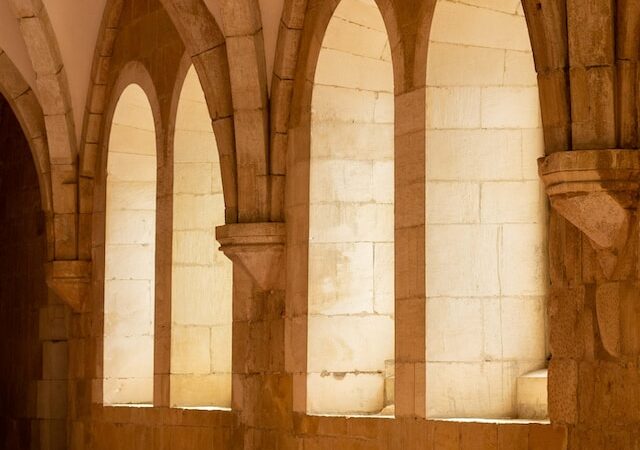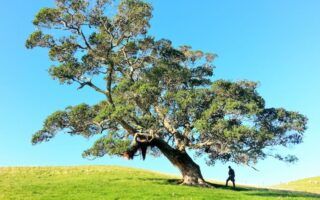Bonnie Thurston’s book, Shaped by the End You Live For: Thomas Merton’s Monastic Spirituality, has a chapter exploring the monastic vocation to solitude. After reflecting on the gifts of solitude for a monk, Thurston writes,
For those of us who live outside the monastery, the solitary vocation is to simplicity, silence, poverty, emptiness, anonymity.
Shaped by the End You Live For
Bonnie Thurston
This list has become a focal point of mine. Each day I make my list of tasks I hope to achieve on the front of a notecard. When I am finished with this list, I flip the card over and write another list: simplicity, silence, poverty, emptiness, anonymity. I suppose it is a list I am hoping to grow into.
The word anonymity is particularly striking because though the list comes from reflection on the spiritual life of Thomas Merton, anonymity is not a word that applies to him. He is one of the most recognizable and influential monks that has ever lived. A psychologist once accused Merton of wanting to be a hermit on Times Square, a remark that was quite painful for Merton.
Reflecting on anonymity is important though because the solitude, silence, emptiness, poverty, and prayerfulness that Merton lived might seem so relevant because he wrote about them in a way that deepens the lives of so many of his readers. But are these values relevant when lived by countless, nameless monks who do not write books, teach, or communicate to the world in any observable way? Are they significant for people who will live and die without anyone knowing about their deepest thoughts? What role do these values hold for the many ordinary people who walk through life, unknown, unheard, not sure that their prayers are heard by God, not sure that they have any significant value in the world?
This morning I was reading a novel by Kristin Hannah called The Nightingale. One of the main characters in the book, Isabelle, was walking through the bookshop her father owned and remembering the past. She remembered her father sitting in a quiet moment sipping a cup of coffee and scratching out some poetry no one was likely to read. It reminded me of a TED talk I show to my classes. In this TED talk, Ethan Hawke discusses creativity. He tells a story about his grandmother. When his grandmother knew she was dying, she wrote some pages about her life. In these few pages, many of her daily chores and tasks are written in a few sentences but she devotes several pages to some costumes she sewed for a local theater. Hawke claims that the reason the costumes received disproportionate attention is because sewing them was a work of creativity for her. Through her sewing she was expressing something of great value from deep within her.
Hawke’s wise observation tells us something about anonymity. Many of the things we do will not be remembered by many and sometimes they won’t even be noticed in the moment they occur. Their significance does not lie in what they produce, in the product. Rather, their significance lies in the relationships they nurture, relationships with others, with our deepest self, with God. The ways we participate in the world that are meaningful to us are meaningful for the world because our participation in them, expresses who we are and is lived in relationship to our Creator. We create in the image of the one who created us.
In a wonderful book called Braiding Sweetgrass, Robin Wall Kimmerer writes about a pond on her property. When she first moved onto the property, the pond was filled with algae, and was a murky, green, ugly body of water. Her children were preschoolers at this time. As a botanist, she understood what she would need to do to make this pond a clear, attractive body of water in which her children might swim. Whenever she could find time in a schedule of full-time work and full-time childcare, she worked on the pond. She was still working to clear up this pond when her oldest daughter left for college. Recognizing that she had never managed to make the pond the sweet swimming spot she had hoped to make for her young daughters, Kimmerer writes,
I worked on the pond and the pond worked on me and together we made a good home.
Braiding Sweetgrass
Robin Wall Kimmerer
This quote has also made it onto one of the notecards I keep on my desk. It reminds me that the work I find meaningful has value because through that work, I have made myself a home.
Thurston calls our participation in interior solitude a special form of love, a form of love that may not be recognized by the world. She writes,
When one makes radical room for God by a decision toward interior solitude, one makes room for what God cares most about, and that is usually what the world passes by, considers useless or “throw-away.”
Shaped by the End You Live For
Bonnie Thurston
I dedicate myself to a lot of work the world finds useless. I have found my greatest treasure there.














